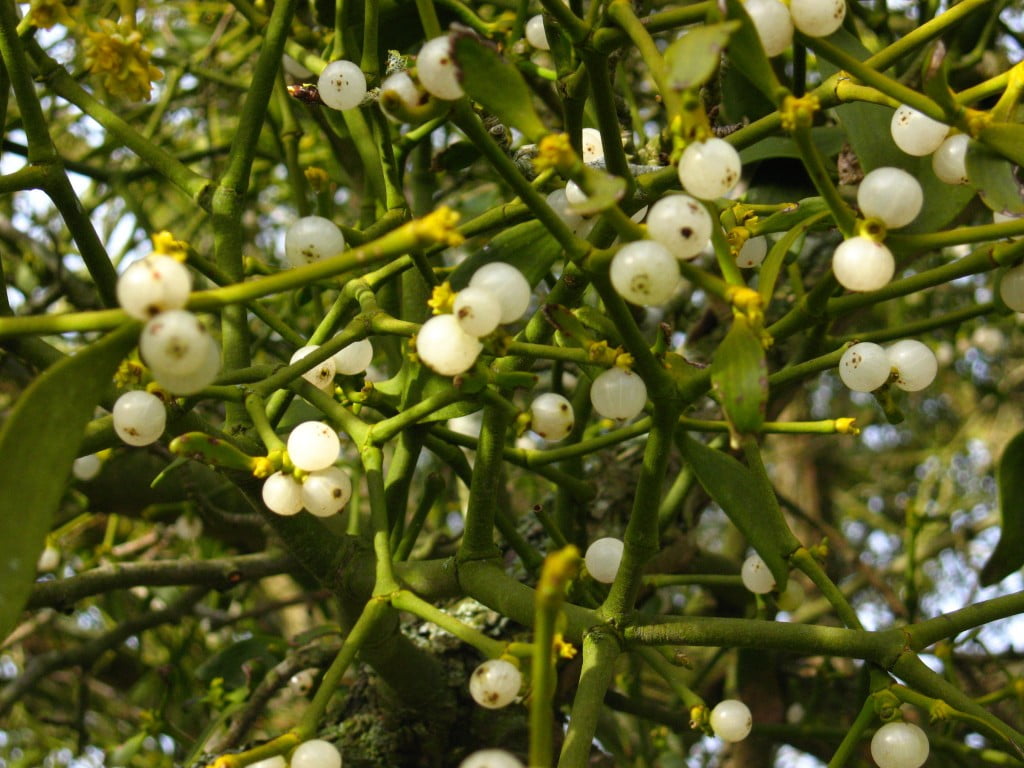A study conducted at Rambam Medical Center in Haifa, Israel, reveals that mistletoe extract is effective in stabilizing patients suffering from advanced stages of colon and lung cancer, adding new credit to the plant’s legacy. The result of the study shows that injections of mistletoe extract can stabilize cancerous tumors and alleviate symptoms suffered by patients, whose chemotherapy no longer works.
The mistletoe plant, also known as the viscum album, is best known for its place in ancient mythology and folklore. It has long been the tradition during the Christmas season to hang mistletoes around the house and for men and women who stand under it to give each other a kiss.
Other ancient myths present the mistletoe plant as the fabled healer of all kinds of medical ailments including epilepsy, heart conditions, edema, and diseases of the spleen. However, with the recent research findings in Israel, its fame is growing as the most frequently prescribed alternative treatment for various kinds of cancers, namely in Germany and other European countries, according to the Mesothelomia Support Network. Herbal medicine uses the leaves and twigs of mistletoe, which is a semi-parasitic plant, but the berries are discarded.
While using the plant’s extract to combat cancer is not a new practice, the recent research conducted at Rambam is adding to the mistletoe’s credibility as a valid form of alternative medicine. While the plant has been used for decades to treat cancer patients, until recently there were no reliable, clinical studies supporting its effectiveness. The research conducted at Rambam Medical Center now adds to the growing number of recent studies confirming that mistletoe’s medicinal capabilities may exceed its place in mythology.
“Mistletoe has unique properties,” said Dr. Maurice Orange, a United Kingdom General Practitioner who has administered mistletoe extract treatments for the past ten years. “It has been shown in labs and with patients to both have anti-cancer properties and a powerful stimulating effect on the immune system.” According to Dr. Orange, mistletoe can counteract tumor growth, while in other instances stimulating the immune system.
The Rambam study focused on patients suffering from lung and colon cancer. Patients suffering from advanced stages of colon cancer received subcutaneous injections, the most common way of administering mistletoe treatments, of the plant’s extract, three times per week. The treatment was only administered after all other conventional forms of chemotherapy were no longer having an effect on the patient. The extract, though not expected to cause shrinkage in the patients’ cancerous tumors, was successful in stabilizing the disease for a period of four months and lessening symptoms in 40 percent of cases.
The plant was also found to improve the quality of life of the cancer patients suffering from advanced stages of the disease and who were not benefiting from regular cancer treatment. Twenty-three patients who were previously regularly required to undergo an intrusive procedure draining fluid from their abdomen through a needle began to receive injections of mistletoe extract. After receiving the mistletoe treatment, the interval between requiring draining procedures significantly increased, therefore increasing the patients’ quality of life.
This study, presented at the annual meeting of the Society for Complementary Medicine held in the London, UK this month, joined other the cutting edge studies conducted internationally supporting the mistletoe’s role in the fight against cancer.
Photo by King
Related posts

Israeli Medical Technologies That Could Change The World

Harnessing Our Own Bodies For Side Effect-Free Weight Loss

Missing Protein Could Unlock Treatment For Aggressive Lung Cancer




Facebook comments